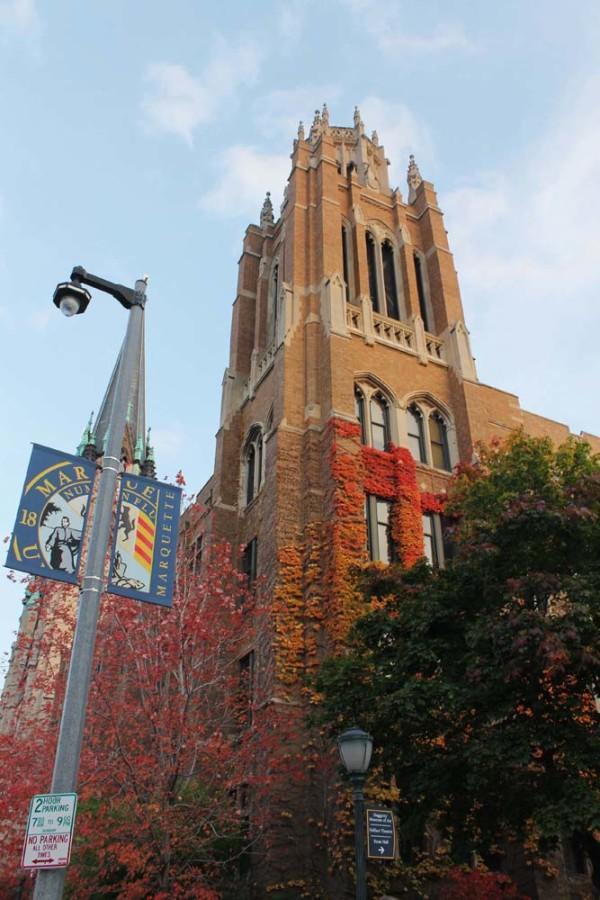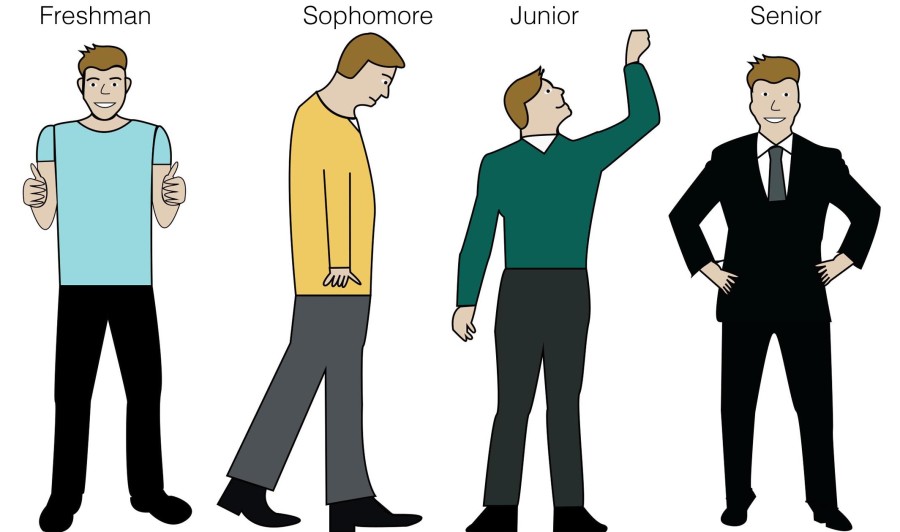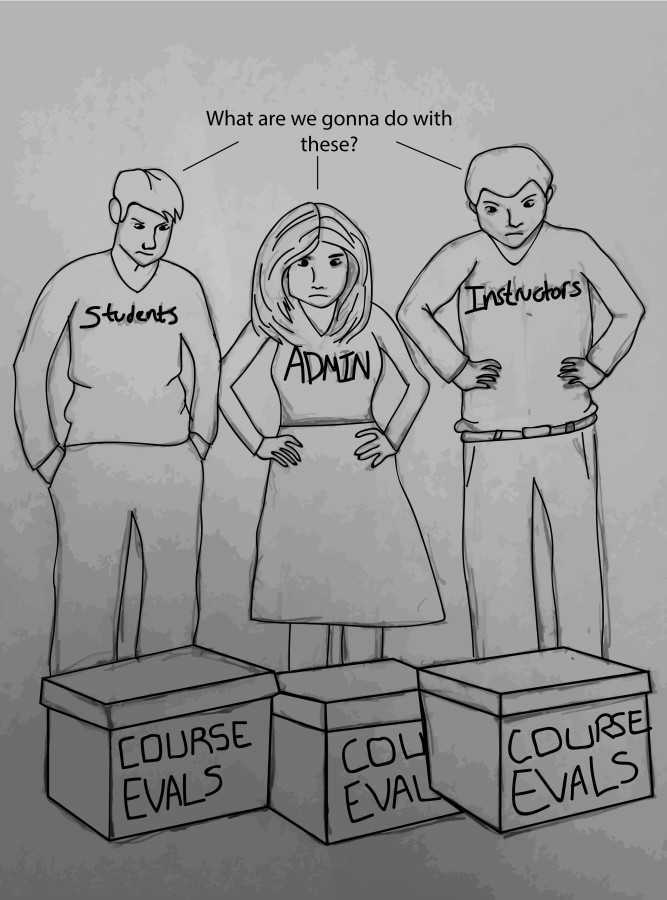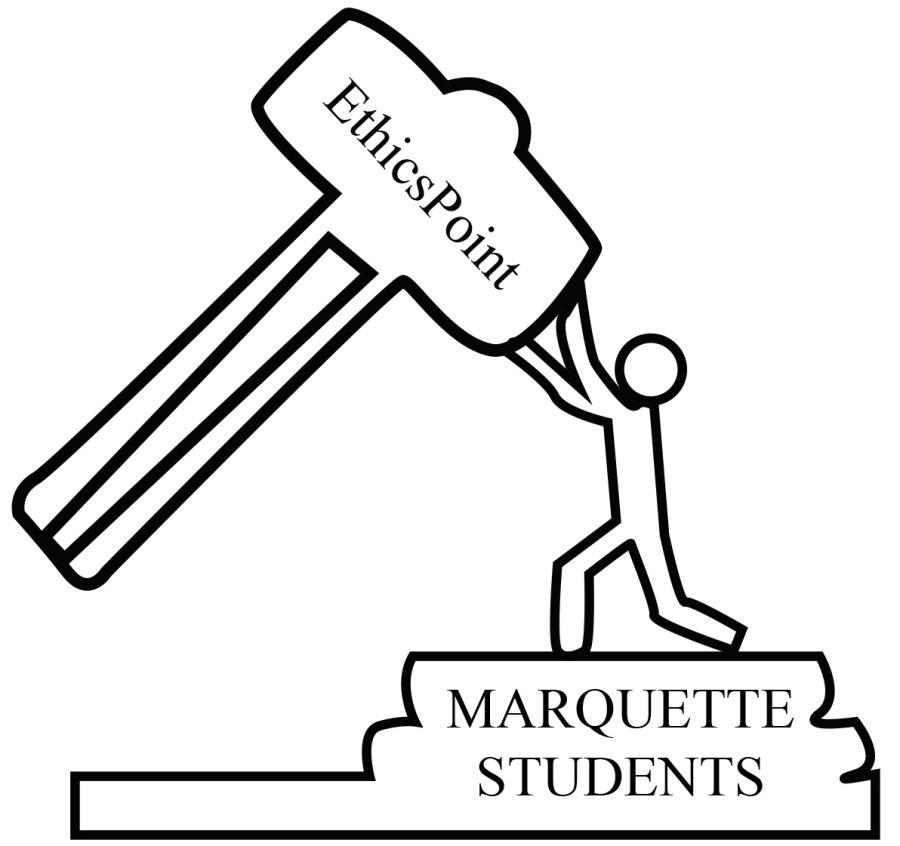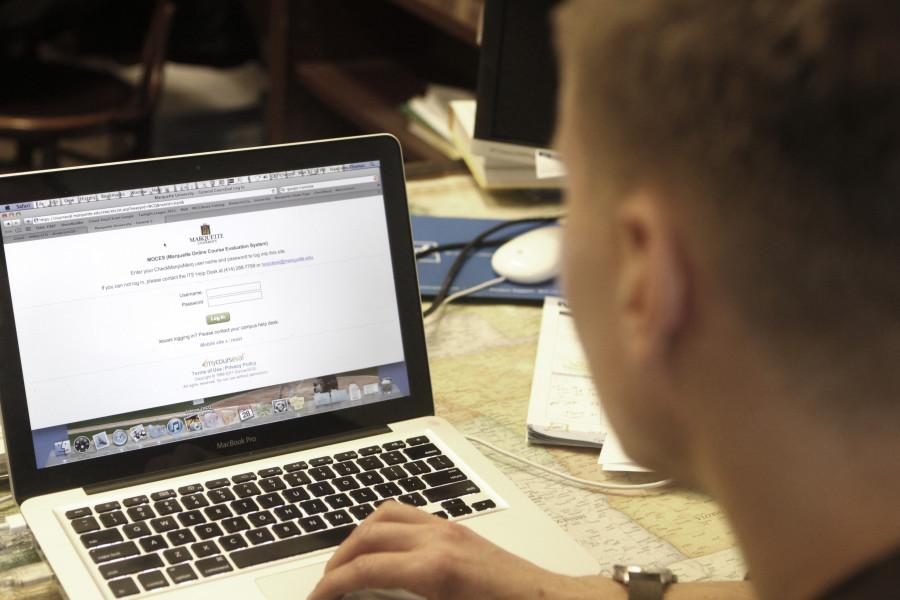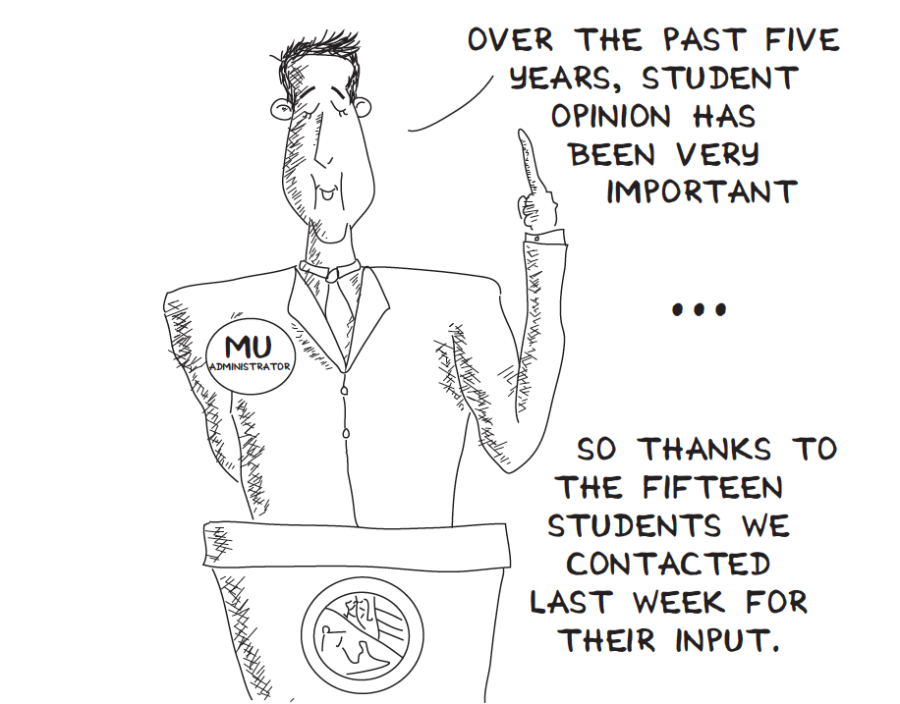Though COVID-19 is presenting unprecedented changes to teaching and learning experiences for Marquette students, faculty and staff, the university should maintain its traditional course evaluation system to gather student input.
Under normal circumstances, evaluations collect student responses to questions about individual courses and instructors. The evaluations give students the option to provide additional comments. Students are invited to complete evaluations toward the end of the semester through the Marquette Online Course Evaluation System. These evaluations are used to improve “the quality of teaching and learning” as well as to aid in promotion and tenure processes for faculty, according to the Office of Institutional Research and Analysis.
However, with the transition to online courses, the university suspended course evaluations for the spring 2020 semester, Marquette announced in a March 19 news release.
The release said the decision was made by Provost Kimo Ah Yun in consultation with the University Academic Senate Executive Committee, Marquette University Student Government, Graduate Student Organization, Deans Council, Committee on Teaching and the University Committee on Faculty Promotions and Tenure.
Students will still have the opportunity to provide course feedback, the release said, but the input will not be tied to any individual instructors.
Marquette students received an email April 20 to complete the Remote Learning Experience Survey, allowing them to provide feedback about their experiences taking online courses.
While the Remote Learning Experience Survey may help the university address technological challenges or general concerns about courses, it does not serve as an adequate replacement for the traditional evaluation system, MOCES.
The recent survey does not provide students with the opportunity to give specific feedback about instructors. In turn, students may be left with unresolved concerns or frustrations — or be unable to provide praise to their professors — and instructors will not be able to learn from valuable feedback and make potential changes to their teaching methods.
Despite the Remote Learning Experience Survey as well as unstructured avenues to provide feedback such as reaching out to deans, these options are not adequate replacements to MOCES, which is a consistent and clear method that students are familiar with.
Instructors are teaching under very different circumstances than they anticipated when the semester began. The lack of ability to plan original syllabi and course timelines for online platforms may put them at a disadvantage. Like students, instructors are adjusting to the dynamics of home life and social isolation.
With this in mind, the university should not use traditional course evaluation feedback to determine faculty promotion or tenure, or to closely critique the performance of instructors. Rather, the evaluations should be reinstated mainly as a tool for professors to reflect on their own practices and grow in their abilities to teach online courses.
The university should not diminish student feedback. Students who are investing in their education should be given the chance to reflect on their experiences through the traditional evaluations.
Additionally, students had the opportunity to engage with instructors and courses in person during the first half of the spring semester. If Marquette decides to reinstate MOCES, it could divide the responses into pre-remote learning and post-remote learning sections, allowing for added context to student responses. This would account for changes in students’ learning experiences and instructors’ teaching capabilities during the COVID-19 pandemic.
Furthermore, the feedback could be helpful in planning for summer courses, which Marquette announced will take place online. These 140+ summer courses could benefit from feedback on current courses and instructors.
It is unknown how long COVID-19 will obligate universities to conduct remote courses. Marquette cannot normalize a practice of forgoing student input on instructors for future terms.
Universities and colleges across the nation are already making plans for possible adjustments for the fall 2020 semester if the coronavirus continues to spread.
Boston University said in an April 10 statement that its contingency plan is considering a in-person return to campus in January 2021 if public health officials deem it unsafe to open in fall 2020. Beloit College in Wisconsin shared that it will break up the traditional fall 2020 semester into two modules to simplify workloads and account for switches to or from remote learning, college leaders announced in an April 2 statement.
Other schools, like Harvard University and Oregon State University, are also planning for scenarios in which students cannot return to campus in the fall.
With the possibility of remote learning extending into the fall 2020 semester, student input on the current semester for individual courses and instructors could improve the learning experiences of students in the future.
With about two weeks left in the spring 2020 semester, Marquette University officials should reinstitute its offerings of traditional course evaluations for students. Even if it means slightly altering the format to account for pre-online and post-online experiences, the university must ensure students’ voices are heard and instructors are given helpful input without impact on promotion or tenure decisions.
Editorial topics by the Marquette Wire are decided at weekly meetings between members of the executive board. The editorial is crafted with leadership by the executive opinions editor. The executive board consists of the executive director of the Wire, managing editor of the Marquette Tribune, managing editor of the Marquette Journal, general manager of MUTV, general manager of MUR and nine additional top editors across the organization.

